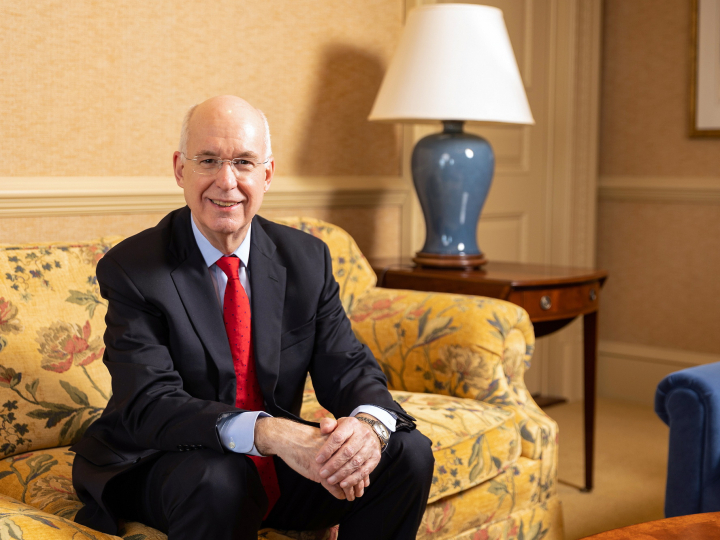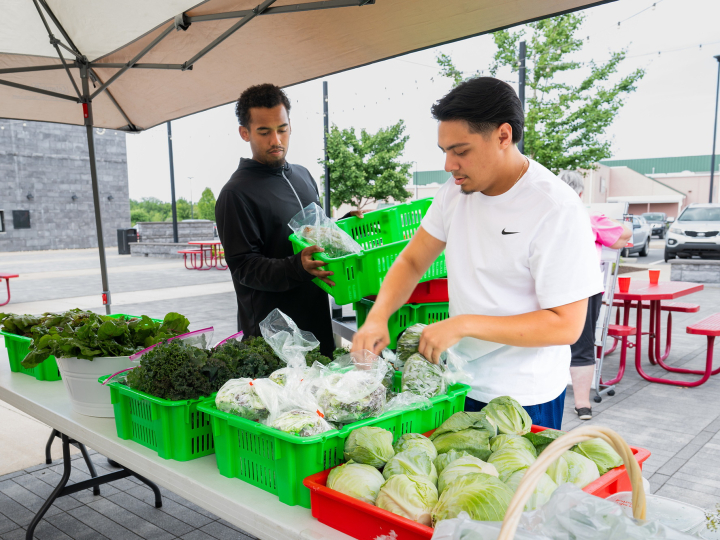MLK Week: From Personal Reflection to Global Action
January 23, 2018
In a world plagued by racism, genocide and crumbling public discourse, individuals of good conscience must dig deep inside themselves, battle their own prejudices and form communities of resistance.
That was the overarching message of this year's Martin Luther King Jr. Week celebration at Bucknell, held Jan. 15–21. The series, Critical Reflections on Current Struggles, brought top scholars, religious leaders and activists to campus for lunch conversations and lectures that urged the University community to honor King's legacy with informed action, rooted in compassion.
"Our nation and our world face urgent problems that call out for the type of moral leadership exemplified by Dr. King," said Professor Carmen Gillespie, English, who coordinated the events as director of the sponsoring Griot Institute for Africana Studies. "This year's speakers challenged Bucknell students, in particular, to engage in deep personal reflection and question their own beliefs, in the tradition of a liberal arts education, then rise to become voices for resistance, activism, peace, understanding and change."
Speakers Inspire, Urge Action
Speakers included Imam Khalid Latif, the first Muslim chaplain at New York and Princeton universities and the youngest chaplain in the history of the New York City Police Department. Latif spoke about facing discrimination as a Muslim-American in the wake of 9/11 and the need for institutional change that is rooted in personal reflection.
Noting that opinions about race, religion and gender are often shaped by forces individuals don't even recognize, he called upon audience members to examine their beliefs and to "be people with values, who are driven by real ideals."
"You might be the only one standing when everyone else is seated. You might be the only one speaking when everyone else is silent," Latif extolled the audience at the Elaine Langone Center. "But you might be what ignites a much-needed movement."
Presenting images taken during his work with Rohingya refugees, who have fled persecution in Myanmar and are struggling for survival in refugee camps in Bangladesh, Latif also urged listeners to move physically beyond their comfort zones.
"If you have privilege and you're just watching someone with less privilege from the safety and security of your spaces, how are you going to help them?" he asked.
Visiting speaker Raffi Freedman-Gurspan, director of external relations at the National Center for Transgender Equality and the first openly transgender White House staff member, spoke to the need for community building in a "rough time" of division and discrimination.
Explaining that members of the LGBTQ community still lack full civil rights protections, she said, "We need to stay awake and cognizant of what's happening. And a lot of [activism] has to come from universities, which have historically been places of resistance."
The keynote event was a public discussion between two of the nation's best-known intellectuals, Cornel West and Robert George, who spoke to an audience of approximately 400 students, faculty, staff and area residents about the value of a liberal arts education.
George, who serves as McCormick Professor of Jurisprudence at Princeton, is a prominent conservative. West, Professor of the Practice of Public Philosophy at Harvard University, is a famously outspoken liberal. But the two have forged what they mutually describe as a brotherhood based upon the respectful and open-minded exchange of informed perspectives.
Both urged students to use their time at Bucknell to explore knowledge for knowledge's sake and to engage in what West called "the civil war of the soul" in an era of "spiritual blackout."
"Bucknell is about deep education," West said. "It's not just about gaining a skill and plugging into the workforce. It's about questioning the doctrines and dogma you may hold dear and letting some of that go. Do you have the courage to examine yourself and find your voice?"
Faith and Charity
The series concluded with an Interfaith Service for Peace and Justice at Rooke Chapel. The service brought together members of diverse faith communities from across the University for readings and reflections on justice, from the viewpoints of different traditions, including Buddhism, Christianity, Hinduism, Islam, Judaism and Sikhism.
All events were open to the public and free of charge, but attendees were encouraged to contribute personal hygiene items, hats, mittens and school supplies to support local charitable organizations.
Bucknell's MLK Week is a project of the President's Diversity Council, in partnership with the Griot Institute; Diversity, Equity & Inclusion; the Office of Civic Engagement; Campus Activities & Programs; and Intercultural Equity & Advocacy.

